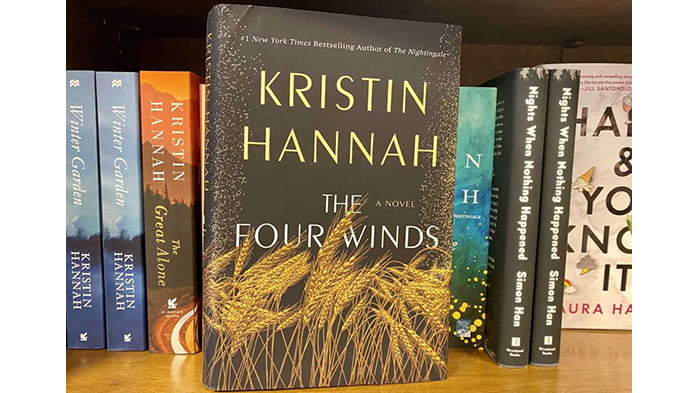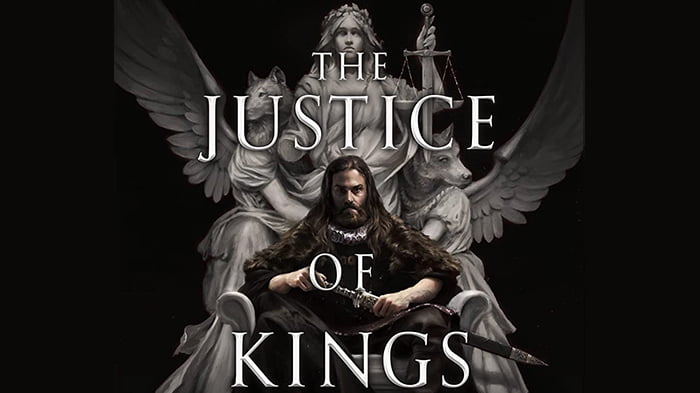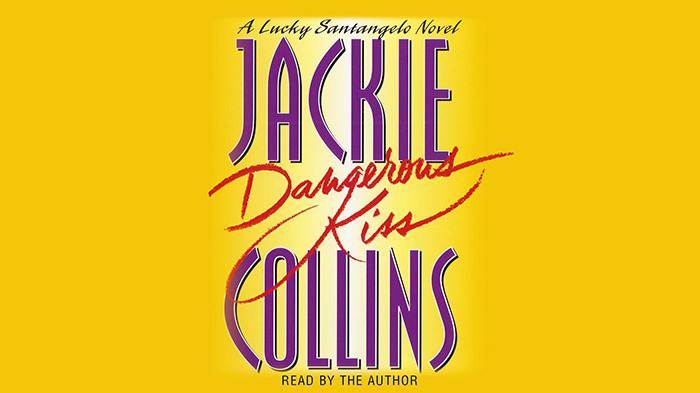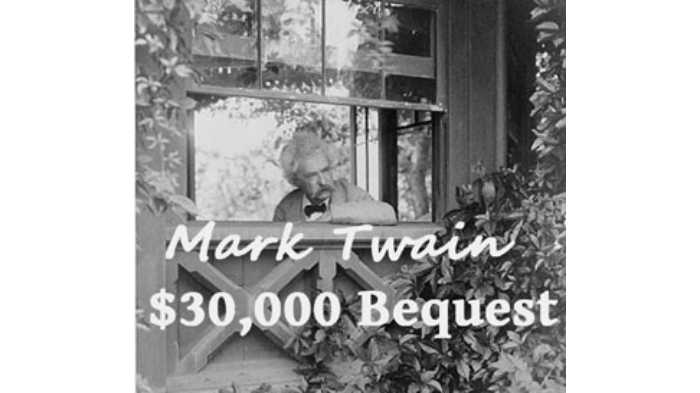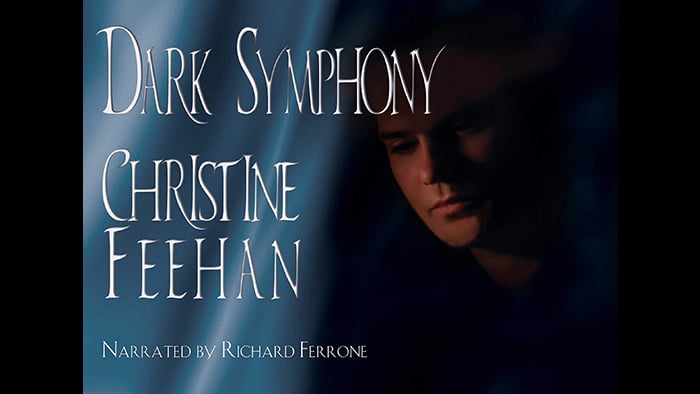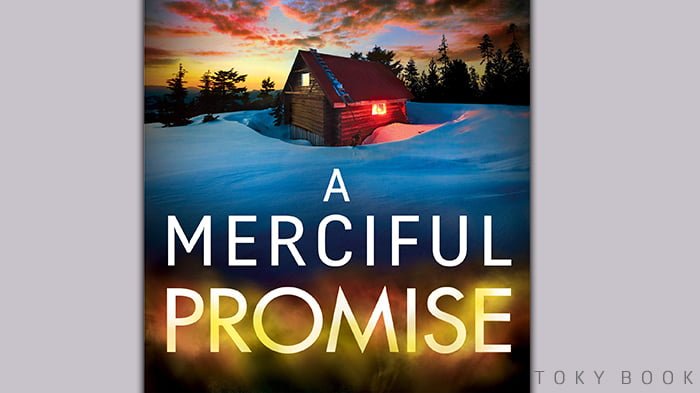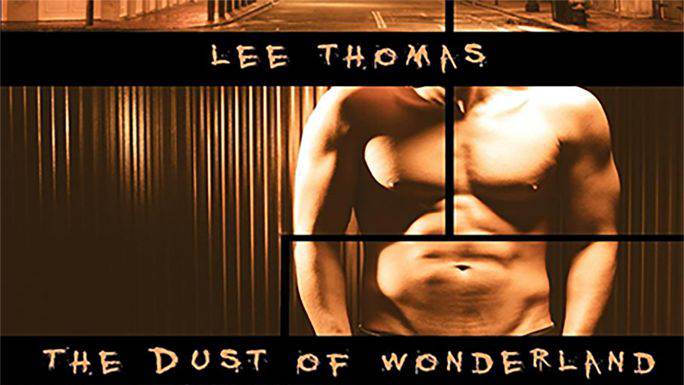Wild Dark Shore: A Haunting Tale of Isolation, Survival, and Impossible Choices
The Last Guardians of a Drowning World
Charlotte McConaghy returns with “Wild Dark Shore,” a masterful exploration of human connection set against the backdrop of environmental collapse. Following her New York Times bestselling novels “Migrations” and “Once There Were Wolves,” McConaghy delivers another emotionally charged narrative that interweaves themes of isolation, trust, and the desperate measures we take to protect what we love.
Set on Shearwater Island, home to the world’s largest seed bank, this novel presents a microcosm of humanity’s struggle against rising seas and disappearing worlds. The story’s premise—a family of caretakers on a remote island discovering a mysterious woman washed ashore—sets the stage for a psychological thriller wrapped in literary fiction’s most beautiful prose.
Setting as Character: Shearwater Island
The Last Bastion of Hope
Shearwater Island emerges as more than mere setting; it becomes a character in its own right, breathing with the weight of its responsibility as humanity’s final seed bank. McConaghy’s description of this remote outpost near Antarctica creates an atmosphere of profound isolation that seeps into every page. The island, once bustling with researchers, now stands nearly empty—a poignant metaphor for our shrinking world.
The seed bank itself represents hope crystallized into tangible form. These preserved specimens carry the weight of future generations, making the Salts’ role as caretakers both noble and crushing. McConaghy expertly uses this setting to explore larger themes about preservation, legacy, and what we choose to save when everything else is disappearing.
Rising Waters, Rising Tension
The environmental backdrop of rising sea levels isn’t just scenery—it’s an ever-present threat that adds urgency to every decision. McConaghy doesn’t need to preach about climate change; she shows its effects through the lived experiance of her characters. The gradually shrinking island becomes a ticking clock, reminding readers that some choices can’t be postponed indefinitely.
The Salt Family: Fractured Guardians
Dominic Salt: Keeper of Secrets
Dominic Salt presents a complex portrait of a man bearing the weight of multiple responsibilities. As both father and guardian of humanity’s botanical future, he embodies the tension between personal and global obligations. McConaghy crafts him as neither purely heroic nor villainous, but deeply human—flawed, secretive, and driven by motivations that remain tantalizingly unclear for much of the narrative.
His relationship with his children reveals layers of complexity. The isolation has clearly taken its toll on the family dynamic, creating fractures that run deep. Dominic’s secrets, hinted at through sabotaged radios and freshly dug graves, suggest a man who has made difficult choices in the name of protection—though whether he’s protecting his family, the seeds, or something else entirely remains deliciously ambiguous.
The Three Children: Inheritors of Isolation
The Salt children represent different responses to their unique situation. Each child processes their isolation differently, creating a fascinating study in how environment shapes personality. McConaghy doesn’t simply present them as victims of their circumstances; instead, they’re fully realized individuals who’ve adapted to their strange existence in distinct ways.
Their interactions with each other and with their father paint a picture of a family that’s simultaneously too close and too distant. The arrival of Rowan disrupts their carefully maintained equilibrium, forcing them to confront aspects of their relationships they’ve long avoided.
Rowan: The Catalyst Storm
A Mystery Washed Ashore
Rowan’s arrival during “the worst storm the island has ever seen” is no coincidence—she is herself a force of nature, bringing change whether the Salts are ready or not. McConaghy masterfully builds her character through layers of revelation, each one shifting our understanding of who she is and why she’s really there.
What makes Rowan particularly compelling is her dual nature as both vulnerable and dangerous. Her physical recovery from whatever brought her to Shearwater’s shores parallels an emotional journey that’s equally fraught. Long accustomed to protecting herself, her gradual opening to the possibility of belonging somewhere—to someone—creates a poignant counterpoint to the suspense of her hidden motives.
The Question of Trust
Rowan’s presence forces everyone on the island to grapple with fundamental questions about trust. Can someone running from their past ever truly start fresh? Is redemption possible when survival is at stake? McConaghy uses Rowan as a lens to examine how isolation affects our ability to connect with others, and whether that connection is worth the risk it inevitably brings.
Themes: Love, Betrayal, and Survival
The Impossible Choices of Love
At its heart, “Wild Dark Shore” is about the impossible choices we make to protect those we love. Each character faces decisions that have no good options, only degrees of harm. McConaghy excells at creating scenarios where love itself becomes a liability, where caring for someone might mean destroying something else equally precious.
The novel explores different forms of love—parental, romantic, and the broader love for humanity’s future—and shows how these can conflict in devastating ways. The seed bank becomes a perfect metaphor for this tension: preserving seeds for future generations might require sacrifices from the current one.
Isolation as Crucible
The isolation of Shearwater Island serves as a crucible that reveals truth about each character. McConaghy demonstrates how extreme circumstances strip away social niceties and comfortable lies, leaving only core truths. The Salts have been shaped by their isolation in ways they don’t fully understand until Rowan’s arrival forces them to see themselves through outside eyes.
This isolation also explores larger questions about human nature. Are we fundamentally social creatures who need others to remain whole? Or does too much proximity to others inevitably lead to conflict and betrayal?
Environmental Collapse as Personal Crisis
McConaghy brilliantly personalizes the global crisis of climate change through her characters’ individual struggles. The rising waters threatening Shearwater become a metaphor for all the forces beyond our control that nevertheless demand response. The novel asks: How do we maintain hope when the world is literally disappearing beneath our feet?
Narrative Structure: Building the Storm
Pacing Like Weather
McConaghy structures her narrative like the storms that plague Shearwater—building slowly, with moments of calm that only emphasize the violence to come. The pacing mirrors the natural rhythm of island life, with long stretches of routine suddenly shattered by crisis. This structure keeps readers off-balance, never quite sure when the next revelation will strike.
The author’s background in creating atmospheric, nature-focused narratives serves her well here. She understands how to use environmental pressures to create narrative tension, making the weather and waves active participants in the story rather than mere backdrop.
Multiple Perspectives
The use of multiple viewpoints allows McConaghy to build a complete picture while maintaining mystery. Each character’s limited understanding creates gaps that readers must fill, making the reading experience actively engaging. We see Rowan through the Salts’ eyes and the Salts through Rowan’s, creating a prismatic effect that reveals different truths depending on the angle of view.
Literary Style: Poetry Meets Thriller
Prose That Sings
McConaghy’s prose style sets her apart in the thriller genre. Her background in literary fiction shines through in sentences that manage to be both beautiful and tense. She describes Shearwater’s harsh landscape with the eye of a poet, finding beauty in desolation and threat in tranquility.
Her nature writing particularly stands out, capturing both the majesty and indifference of the natural world. The storms that batter Shearwater are rendered in visceral detail that makes readers feel the wind and taste the salt spray. This attention to sensory detail grounds the more abstract themes in physical reality.
Psychological Complexity
While “Wild Dark Shore” contains thriller elements—sabotaged radios, freshly dug graves, hidden motives—McConaghy never sacrifices psychological complexity for plot momentum. Her characters’ interior lives are as fully realized as their external actions, creating a reading experience that satisfies on multiple levels.
The psychological tension often exceeds the physical danger. The question of who to trust becomes more pressing than any immediate threat, and the slow revelation of each character’s true nature provides the novel’s most shocking moments.
The Audiobook Experience: Voices from the Edge
Multicast Narration Excellence
The multicast narration, praised by AudioFile, adds incredible depth to the listening experience. Each narrator brings their character to life with distinct vocal choices that enhance personality without becoming caricature. The ensemble approach particularly suits this story of isolated individuals trying to connect, as each voice maintains its separateness while contributing to the whole.
The narrators excel at capturing the emotional nuances of McConaghy’s prose. Rowan’s guarded vulnerability, Dominic’s weary determination, and the children’s various coping mechanisms all come through clearly in the vocal performances. The production values from Macmillan Audio ensure that technical quality matches the artistic achievement.
Listen free at Tokybook to experience this atmospheric thriller in its full audio glory. The multicast narration transforms an already immersive story into something truly special, making listeners feel as though they’re standing on Shearwater’s wind-swept shores alongside the characters.
Comparisons and Context: McConaghy’s Evolution
Building on Past Success
Readers familiar with “Migrations” and “Once There Were Wolves” will recognize McConaghy’s signature concerns—environmental destruction, human resilience, and the complex relationships between people and the natural world. However, “Wild Dark Shore” represents an evolution in her storytelling, incorporating more thriller elements while maintaining literary depth.
Where “Migrations” followed a journey across the globe and “Once There Were Wolves” explored rewilding, “Wild Dark Shore” constrains its scope to a single island. This limitation becomes a strength, forcing all conflict inward and creating a pressure-cooker atmosphere that serves the story perfectly.
Genre-Blending Mastery
McConaghy continues to defy easy categorization, creating works that blend literary fiction, environmental writing, thriller, and family drama. “Wild Dark Shore” might be her most successful genre blend yet, satisfying readers who come for beautiful prose while keeping them turning pages with genuine suspense.
Critical Analysis: Strengths and Considerations
Where the Novel Soars
“Wild Dark Shore” excels in creating atmosphere and maintaining ambiguity. McConaghy trusts her readers to handle complexity, never simplifying her characters into heroes or villains. The environmental themes feel urgent without becoming preachy, and the family dynamics ring true in their messiness.
The mystery elements are particularly well-handled. Rather than relying on shocking twists for their own sake, each revelation feels organic to the characters and their situation. The secrets people keep make psychological sense, rooted in understandable if not always admirable motivations.
Minor Concerns
Some readers might find the pacing deliberate in the early sections, as McConaghy takes time establishing the island’s atmosphere and the family’s dynamics. The literary style, while beautiful, occasionally slows the thriller elements. However, patient readers will find these apparent weaknesses become strengths as the story progresses, with the careful setup paying off in the explosive final act.
The ending, while thematically appropriate, might frustrate readers who prefer neat resolution. McConaghy chooses ambiguity over clarity in some aspects, which serves her themes but may leave some wanting more definitive answers.
Environmental Fiction for Our Time
Beyond Dystopia
While “Wild Dark Shore” presents a world affected by climate change, it avoids the easy despair of dystopian fiction. Instead, McConaghy focuses on adaptation and resilience, showing how people continue to love, hope, and protect even as their world changes irrevocably.
The seed bank serves as a perfect symbol of this measured hope. It acknowledges loss—these seeds represent plants that may no longer survive in the wild—while maintaining faith in an eventual future where they might grow again. This balance between realism and hope makes the novel’s environmental message more powerful than any polemic.
Personal Stakes in Global Crisis
By focusing on one family’s story, McConaghy makes the global personal. The Salts’ struggles to maintain their humanity while serving as guardians of the future becomes a metaphor for all of us living through environmental crisis. How do we balance immediate needs with long-term survival? Can we maintain hope without denying reality?
The Question of Belonging
Finding Home at the End of the World
Both Rowan and the Salts grapple with questions of belonging. For the Salts, Shearwater is home by circumstance if not choice. For Rowan, it represents a possible fresh start. McConaghy explores how we create belonging in impossible circumstances and whether true connection requires complete honesty.
The novel suggests that belonging isn’t about place but about people—yet it also shows how people can betray that belonging. Trust becomes both necessity and luxury in their isolated world, something they can’t afford to give freely yet can’t survive without.
Final Verdict: Essential Reading
“Wild Dark Shore” stands as Charlotte McConaghy’s most accomplished novel yet, blending the environmental consciousness of her previous works with a new level of psychological suspense. The story operates on multiple levels—as thriller, as family drama, as environmental fiction, and as meditation on trust and belonging—succeeding brilliantly at each.
McConaghy has created characters who feel absolutely real in an unreal situation, whose choices resonate because they’re impossible rather than in spite of it. The prose sings while the plot races, creating that rare novel that satisfies both the heart and the mind.
For readers who loved “Migrations” and “Once There Were Wolves,” this novel delivers everything that made those books special while adding new dimensions. For newcomers to McConaghy’s work, “Wild Dark Shore” serves as a perfect introduction to an author who refuses to be contained by genre boundaries.
The novel asks difficult questions about survival, love, and what we owe to future generations. It provides no easy answers, instead trusting readers to grapple with the same impossible choices facing its characters. In our own era of rising seas and uncertain futures, “Wild Dark Shore” feels not just timely but essential.
Don’t miss this breathtaking novel—listen free at Tokybook and let the multicast narration transport you to Shearwater Island, where secrets run as deep as the rising waters and trust is the scarcest resource of all.
 Skip to content
Skip to content
